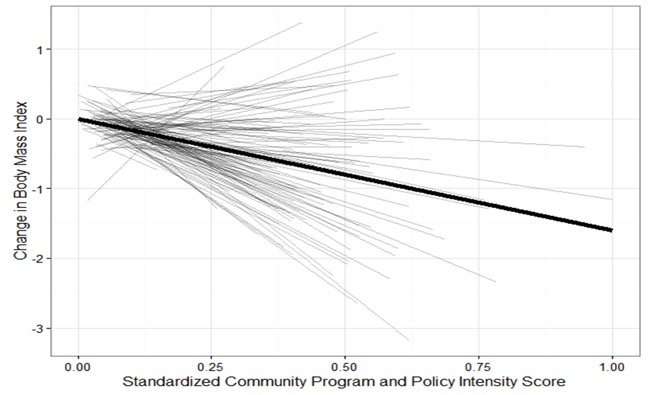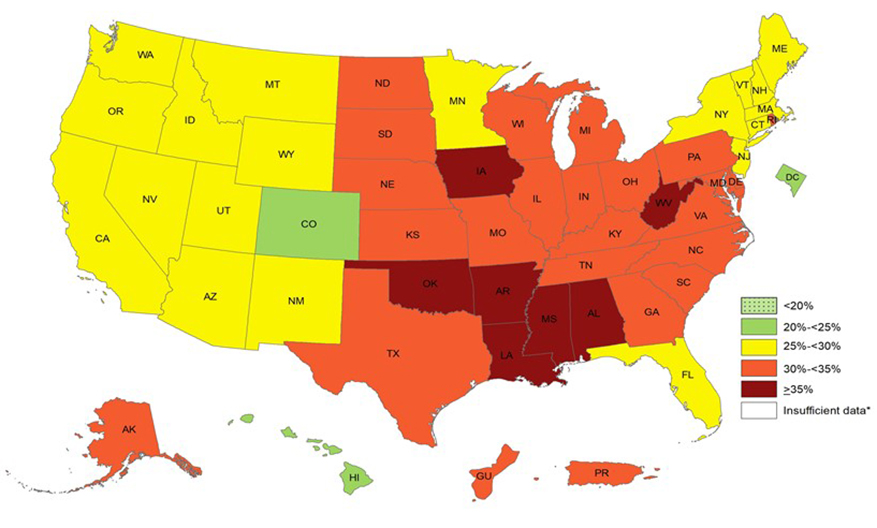
In July 2019, results of the Nemours Children’s Health System’s National Early Care and Education Learning Collaboratives (ECELC) project were published in the journal Preventing Chronic Disease. The ECELC project, funded by the Centers for Disease Control and Prevention (CDC), involved nearly 1,200 child care programs in 10 states. This collaborative is the largest of […]

A March 2019 brief by Healthy Eating Research, a national program of the Robert Wood Johnson Foundation, states that NAPSACC (i.e.: Nutrition And Physical Activity Self-Assessment for Child Care) has the “best evidence for impact” on obesity prevention in young children. Developed by the Children’s Healthy Weight Research Group at the UNC Center for Health […]

Obesity is a growing problem among toddlers, children and adolescents in the United States. Gaining weight and fat mass rapidly during the first six months of life is one risk factor that can lead to obesity in children. A University of Minnesota School of Public Health study, recently published in the journal Nutrients, examined the […]

Researchers evaluated the association of the 2009 changes to the US Special Supplemental Nutrition Program for Women, Infants, and Children (WIC) food package and childhood obesity trends. They hypothesized that the food package change reduced obesity among children participating in WIC, a population that has been especially vulnerable to the childhood obesity epidemic. Before the […]

Children monitored regularly for height and weight are less likely to be overweight, according to research by University of Manchester and Oxford experts. Publishing in the journal Preventive Medicine Reports, the researchers say current practice may fail to spot a large number of children who are a normal weight on school entry but develop obesity […]

Preschoolers are not experiencing enough outdoor play when not in childcare, new research from the University of Western Australia (UWA) has found. The research may be of interest to early childhood education and care services in encouraging and providing suggestions for families to engage in outdoor activities at home. The research also highlights the importance […]

Breastfeeding is associated with a reduced risk of asthma and allergies in infants, but only about half of American mothers breastfeed their children through their first 6 months, according to the Centers for Disease Control and Prevention’s breastfeeding report card. Physical complications, such as insufficient milk supply, can discourage mothers from breastfeeding or expressing breast […]

According to the Centers for Disease Control and Prevention, one in five U.S. school-age children and young people ages 6 to 19 years suffers from obesity, a tripling of such numbers since the 1970s. For individual children, genetics, eating and exercise all play a role in weight status—but the influence of a community’s design, programs […]

This month, the CDC released new data on self-reported adult obesity prevalence for all 50 states, the District of Columbia, Guam, and Puerto Rico. The 2017 Adult Obesity Prevalence Maps show that adult obesity prevalence across the country remains high and differs by race, ethnicity, and education. The data come from the Behavioral Risk Factor Surveillance […]

New research from the American Academy of Pediatrics shows that the U.S. child obesity epidemic is not easing, as some earlier research suggested. According to a study in the March 2018 Pediatrics, “Prevalence of Obesity and Severe Obesity in US Children, 1999-2016,” rates of overweight and obesity have increased in all age groups among children […]

